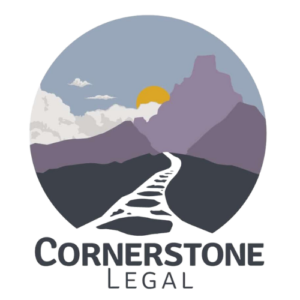A Special Needs Trust is a way to provide for your loved one who is on needs-based government benefits without the threat of losing those same benefits and resources.
What Are Some Special Needs Planning Concerns and Challenges?
- How do I ensure my loved one will receive a proper education?
- How will financial and healthcare decisions be made?
- How will my loved one find a job?
- How will my loved one access quality care and pay for it?
- How do I ensure my loved one has the best quality of life?
- Who will take care of my loved one if I’m gone?
- Where will my loved one live if I’m gone?
- How will my loved one maximize government benefits?
- How will my assets and income be used to care for my loved one?
First-Party Special Needs Trusts:
- Created by the individual, a parent or grandparent, or the court
- Funded with the individual’s own assets (this could be an inheritance, a gift, or possibly a lawsuit settlement)
- The individual must be under the age of 65 and disabled
- Distributions are made by the Trustee for the individual’s benefit
- Distributions are limited to being used for the individual’s needs and cannot be used for any expenses that are already covered by benefits and/or resources
- Distributions should not be made directly to the individual
- The Special Needs Trust MUST include a Medicaid-payback provision upon the death of the individual
Third-Party Special Needs Trust:
- Created and funded by a third party and their assets (this could be done during the third party’s lifetime, or after they pass away)
- The individual can be any age
- The Special Needs Trust does NOT need to include a Medicaid-payback provision upon the death of the individual
What are the distribution standards for a Special Needs Trust?
Honestly, it depends on how the Special Needs Trust is drafted. If the Trustee has broad discretion, they may use the trust income and principal for the “special needs” of the beneficiary. Special needs is usually defined as anything that would be useful or helpful to the beneficiary that is not provided by public benefits.
- acupuncture or acupressure
- attorney fees
- appliances (TV, DVD, stereo, microwave, stove, refrigerator, washer and dryer)
- athletic club membership
- babysitting for beneficiary
- books and magazines
- bus pass/public transportation fees
- care management services
- clothing
- computer, tablet (hardware, software, programs, Internet service)
- curtains, blinds, drapes
- dry cleaning and laundry services
- education: courses or classes (academic or recreational)
- elective surgery
- furniture, home furnishings
- gasoline for automobile
- haircuts/salon services
- hearing aids and batteries
- house cleaning/maid services/cleaning supplies
- insurance (automobile, home, and/or possessions)
- musical instruments (including lessons)
- nonfood grocery items (laundry soap, bleach, fabric softener, deodorant, dish soap, hand and body soap, personal hygiene products, paper towels, napkins, Kleenex, toilet paper, any household cleaning products)
- over-the-counter medications (including vitamins or herbs)
- personal supplies (shampoo, toilet paper, deodorant, toothbrush/paste, etc.)
- pet, pet supplies
- private counseling
- recreation (movies, sporting events—but not meals)
- repair services (appliance, automobile, bicycle, household)
- sporting goods/equipment
- transportation (automobile, motorcycle, bicycle, moped) travel
- utility bills—telephone, cell phone, cable, television
What Types of Expenses are Generally Safe to Pay from a Special Needs Trust?
Do you have a loved one with a disability or illness and want to ensure their government benefits will not be lost if they receive an inheritance? Or just want to secure a trust for them to provide additional money for essential needs without the threat of them losing their government benefits?
If so, let’s sit down together to create a Special Needs Trust and solidify their future. I’ll help make sure their long-term financial needs will be taken care of and protect their state and/or federal resources.
Give me a call at (517) 708-2222 or email me at Katrina@CornerstoneLegalPLLC.com.



